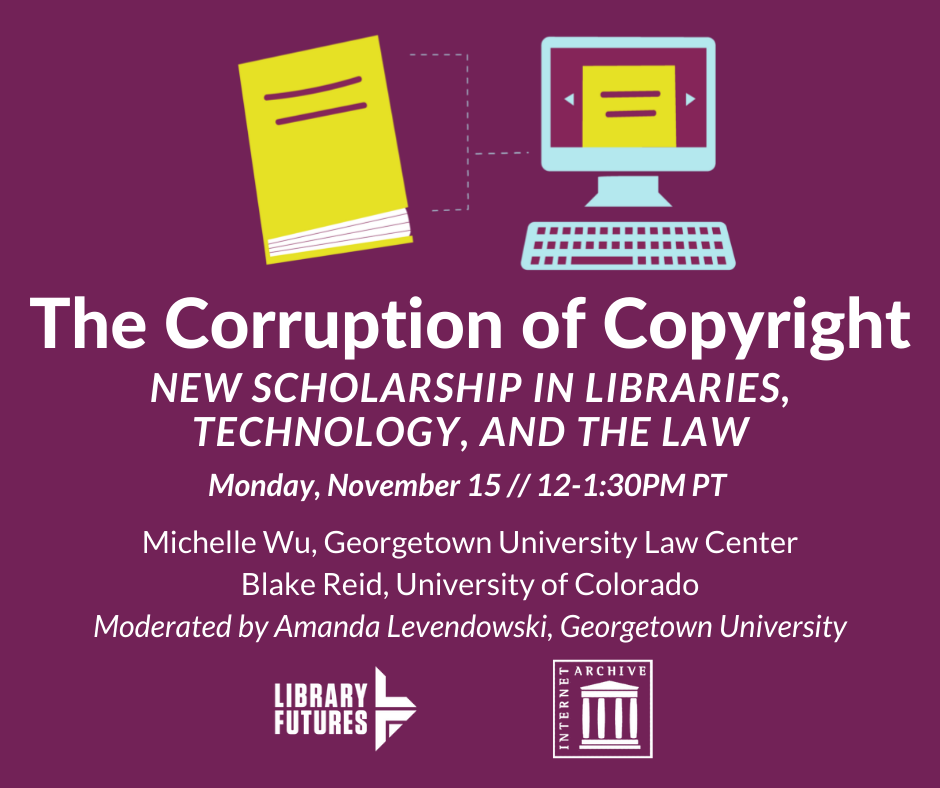
UPDATED 11/18/21—Watch session recording now:
Join Library Futures, Internet Archive, and the Georgetown Intellectual Property and Information Policy (iPIP) Clinic for a panel on copyright, licensing, accessibility, and the law. We’ll be discussing new scholarship from legal experts Michelle Wu (retired Georgetown University Law Center) and Blake Reid (Clinical Professor at Colorado Law).
The Corruption of Copyright: New Scholarship in Libraries, Technology, & the Law
Monday, November 15
12pm PT / 3pm ET
Wu’s “The Corruption of Copyright and Returning to its Original Purposes” (Legal Reference Services Quarterly) looks at how some industries have redirected the benefits of copyright towards themselves through licensing and other activities, which impacts author remuneration and upsets the balance of the public interest. This paper focuses on the book, music, and entertainment industries, examines how copyright has been used to suppress the uses it was intended to foster, and explores ongoing and proposed avenues for course correction: https://scholarship.law.georgetown.edu/facpub/2410/
Reid’s “Copyright and Disability” (forthcoming in California Law Review) discusses how recent progress toward copyright limitations and exceptions continues an ableist tradition in the development of U.S. copyright policy: centering the interests of copyright holders, rather than those of readers, viewers, listeners, users, and authors with disabilities. Using case studies, Reid explores copyright’s ableist tradition to discuss how it subordinates the actual interests of people with disability. https://papers.ssrn.com/sol3/papers.cfm?abstract_id=3381201
The panel will be moderated by Amanda Levendowski, Associate Professor of Law at Georgetown Law.
Don’t even get me started with textbooks: https://www.eff.org/deeplinks/2021/10/inequitable-access-anti-competitive-scheme-textbook-publishers
They previously despise the act of students saving money by reselling used copies or borrowing them, by using 1-time use cards for online courses.
I emailed the WGBH archive how I could watch past episodes of NOVA (5-10 yeaes ago) and they never wrote back. They currently seem to be preoccupied with airing stock footage of Boston from the 80s. It’s a shame to have all those science documentaries locked up in a private archive.
In the 21st century, many businesses need protection against illegal prescriptions